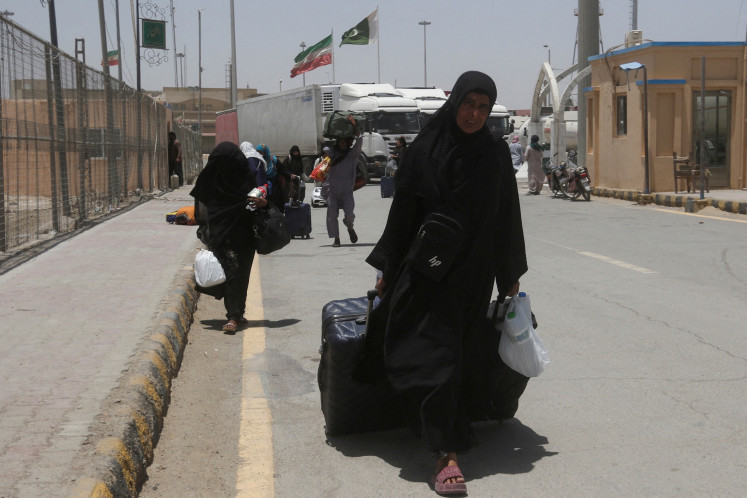Popular Reads
Top Results
Can't find what you're looking for?
View all search resultsPopular Reads
Top Results
Can't find what you're looking for?
View all search resultsYour letters: The synergy of SMEs and banks
Statistics show the number of units of small and medium enterprises (SMEs) in Indonesia approached 99
Change text size
Gift Premium Articles
to Anyone

S
tatistics show the number of units of small and medium enterprises (SMEs) in Indonesia approached 99.98 percent of the total units of companies in Indonesia. The number of people employed came to 91.8 million people or 97.3 percent of total employment in Indonesia.
Originally, the presence of SMEs in the country was underestimated by the government and the banks. SMEs were only known as signs of petty business, but after they were tested and survived in the midst of the crisis that plagued Indonesia in 1998, the government moved to help finance SMEs.
We know of various loan packages arranged by the state's banks. People's Business Credit (KUR) was featured heavily in the campaign for the government.
SME business has spread all over the archipelago, quite evenly. Indeed, the sole 'entrepreneurial' citizens of this nation have long been apparent, even before independence. SMEs have proven throughout the history of the nation to be a driving force and the savior of the Indonesian economy. SMEs can sustain the economic foundations of the nation in times of distress and economic crisis, such as in 1998.
At that time, some conglomerates obtained a loan facility from the government, known as the Bank Indonesia Liquidity Assistance (BLBI).
But many tycoons who received BLBI escaped overseas. Trillions of dollars disbursed by the government (BI) went missing. Ironically, the government wanted to help tycoons but the tycoons did not have good intentions.
Now let us look at the factual existence of SMEs in the midst of widespread networking economies of capitalism in this country. SMEs participate and are instrumental in not only dampening social unrest due to the growing unemployment rate, but also helping to foster the macro-economic averaged State.
In addition, we know that the business activities of SMEs are located within middle class society, whose existence forms the majority, thereby strengthening the economic foundation of the nation.
It is also important to notice BPS data on the contribution of SMEs to the increase in gross domestic product (GDP). Last year, SMEs accounted for 56 percent of total GDP in Indonesia. The government's concern over the growth and development of SMEs is appropriate and it is relevant to focus primarily on the development of the real sector.
SMEs 'play' more in the real sector and reach the lives of many people, who benefit not only from economic growth but also the distribution of welfare.
Efforts to spread-grow the economy should be directed at strengthening the management of SMEs. It is common knowledge that banks prefer to do business with big companies with a turnover of billions and even trillions of dollars.
Logically, doing business with a big company can bring greater profit.
However the risk of loss is also greater. When the financial crisis led to many bankrupt big businesses, this also affected the banking sector.
Embracing SMEs is more profitable for banks and safer in the short, medium and long term.
SME business prospects are wide open and promising. Many small businesses/SMEs get good demand, but they are still run with a simple business management.
This is understandable because most of them run the business by 'learning by doing' and do not get special training. If only the banks can provide loans and help sharpen their business management, SMEs will develop professionally, while banks will reap the benefits of such SME advances.
Aries Musnandar
Visiting lecturer at Brawijaya University
Malang, West Java









